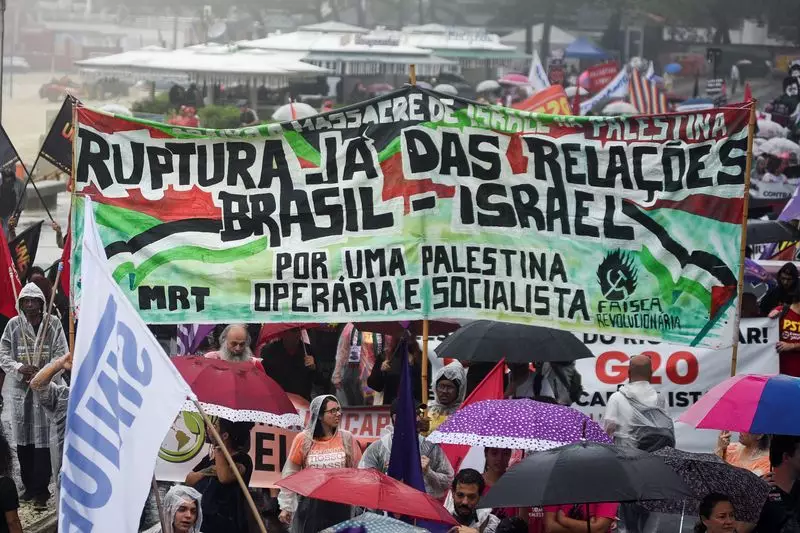As the Group of Twenty (G20) prepares for its upcoming summit in Rio de Janeiro, a critical examination of the intersection of climate change finance, taxation of the affluent, and the ongoing geopolitical tensions is warranted. The negotiations leading up to the summit reveal a complex web of conflicting interests among developed and developing nations, particularly regarding financial contributions to climate initiatives and the impact of current global conflicts.
The G20 gathers representatives from the world’s largest economies, and their discussions often revolve around significant global issues. In the lead-up to this year’s summit, the spotlight is particularly focused on climate finance amidst the United Nations COP29 climate talks. Here, negotiators are grappling with expectations for wealthier nations to step up their financial commitments to address climate change. A consensus on this front is crucial, as many in the developing world argue that it is the responsibility of the most affluent countries to finance initiatives aimed at mitigating climate impacts. However, resistance persists, illustrating the inherent divisions that complicate the discussions.
The ongoing war in Ukraine and heightened tensions in Gaza have introduced additional layers of complexity to the G20 talks. Since the onset of the Russian invasion in 2022, addressing this conflict has been a contentious issue, leading many G20 sherpas to avoid extensive discussions surrounding warfare in preliminary meetings. The challenge remains: how to adequately address international conflict while fostering an environment conducive to productive dialogue on pressing issues like climate change.
In a bid to create a joint statement, delegates are considering minimal references to these conflicts. Such an approach may turn the communiqué into a vague collection of sentiments rather than a decisive declaration of purpose. This is indicative of a larger trend within international negotiations where complex issues get distilled to appease varying interests, resulting in outcomes that lack the necessary strength to make a real difference.
Adding to the friction among G20 members is the contentious issue of taxing the wealthy, a concept that is particularly championed by Brazilian President Luiz Inácio Lula da Silva. Recent developments, however, provide insight into the quagmire faced during negotiations. Argentina’s reversal on endorsing tax proposals for the super-rich—a shift reportedly influenced by newly elected President Javier Milei—poses a significant barrier to reaching a unified stance. Milei’s recent visit to former President Donald Trump underscores a potential shift in political dynamics. With looming uncertainties surrounding U.S. climate policies, especially if Trump were to abandon commitments made under the Paris Accord, the landscape for international climate cooperation becomes increasingly volatile.
Looking Ahead
As the discussions in Rio progress, the lack of agreement on both climate finance and taxation reflects deeper ideological rifts among member states. The question remains whether the G20 can overcome its internal divisions to forge a path toward meaningful action on these pressing issues. The outcome of this summit could significantly influence global climate policy trajectories and international relations in the years to come. Without a concerted effort to reconcile these competing interests, the G20 risks becoming mired in the very challenges it strives to address, potentially thwarting global initiatives to combat climate change and foster economic equity.

